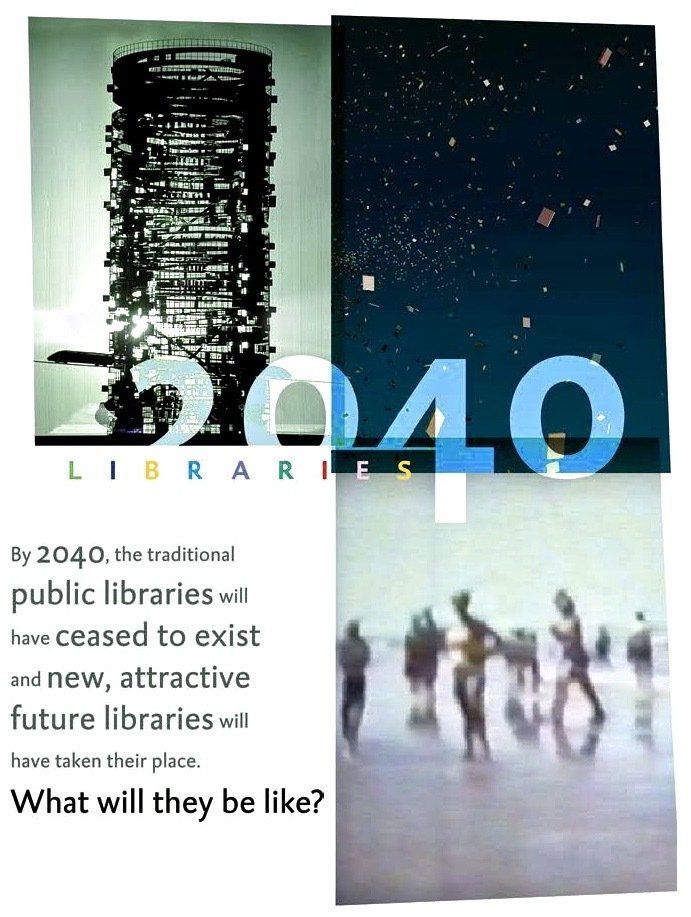Overige publicaties (selectie)
I Have to Change to Stay the Same
2017
Libraries should take on a coordinating and inspiring role in enhancing collective learning and the collective intelligence of the community. Capacity building can no longer be seen in isolation. Exchanging thoughts and ideas are essential components of the learning process, but instead of just ‘consuming’ this information, people need to be engaged in real dialogue.
Keynote TK Forum 2017 Bangkok January 2017
Out of the Bieb; 9 kunstenaars / 5 reizen / 5 interviews / 1 essay en heel veel beelden
2016
Vijf ontdekkingsreizen werden ondernomen en de reizigers zwermden uit over de halve wereld, want vreemd genoeg bleef iedereen boven de evenaar.... Zij kwamen terug met koffers vol inspiratie en veel om over na te denken. Onvermijdelijk dringt zich dan de vraag op wat er moet gebeuren met al die mooie en aanstekelijke reisverhalen. De neiging is groot om alles meteen te vertalen in concrete tips, pilots en projecten. Daar is op zich niets mis mee, maar daarmee doen we het project te kort. Want alle verslagen gaan óók over authenticiteit en de rol van de bibliotheek in onze samenleving en die diepere betekenislaag is meer dan de moeite waard om verder te ontdekken....
Uit slot-essay: Nu eerst denken, dan doen.
Publicatie (2016) van bkkc, Bieb 's-Hertogenbosch, Cubiss en Bibliotheek Midden-Brabant
Better Library and Learning Space
2013
What are the most important things a 21st-century library should do with its space? Each chapter in this cutting-edge text addresses this critical question, capturing the insights and practical ideas of leading international librarians, educators and designers to offer you a ‘creative resource bank’ that will help to transform your library and learning spaces. This is an innovative and practical toolkit introducing concepts, drawing together opinions and encouraging new ways of thinking about library learning spaces for the future.
- Chapter 5 – Europe projects and trends – Joyce Sternheim and Rob Bruijnzeels
- Chapter 18 – The Library has Left the Building - Joyce Sternheim and Rob Bruijnzeels
Uitgeverij: Facet Publishing (okt. 2013)
The Library School: empowering the sustainable innovation capacity of new librarians
2012
Dramatic changes in the role and position of public libraries require a fundamental reconsideration of professional development programs for library professionals. This paper seeks to address this issue. Design/methodology/approach – This Dutch case study describes an innovative academic professional learning programme and its development through a process of intensive stakeholder consultation and co-creation.m
Library Management / Emerald (2012)
Bibliotheken als Lernorte der Erwachsenenbildung
2012
The author presents examples of good practice and defines central tasks and processes of modern libraries, which are regarded as central learning spaces for adults. Using the criteria »shortage – surplus«, »consumption – co-creation« and »product – process«, the relevant social challenges for libraries and adult education are described. It becomes evident that libraries and adult education are in a period of transition, which requires suitable architectural solutions.
DIE Zeitschrift für Erwachsenenbildung (2012)
Design Criteria for the Library of Tomorrow
2008
The library is in transition from a building with space for 'passive consumption' and the storage of books into an institute where users 'tag', comment upon and contextualize information themselves:
- The library is changing and this has consequences for the development criteria of tomorrow's libraries.
- The library links to all kinds of partners – archives, museums and creative institutions – in the cultural, pedagogic and social fields.
- The library will become a multifaceted facility where people will not only consume, but also create knowledge.
- Upstream’ is as important as downstream
Volume | Independent quarterly for Architecture (2008)
Leren schitteren in drie stappen
2008
De samenleving verandert, de bibliotheek verandert: het is een bekend adagium. De vraag is hoe de bibliotheek moet inspelen op die veranderende samenleving. Kunnen wij volstaan met een beetje bijsturen of zijn fundamentele veranderingen nodig? En wat betekent dat voor het HRM-beleid?
Bibliotheekblad (augustus2008)
De Bibliotheek anders bekeken
2008
Er is teveel aan de hand in onze samenleving om te blijven hangen in het verleden. De bibliotheek zoals wij die kennen, heeft haar langste tijd gehad; het instituut heeft een fundamentele herijking nodig. De behoeften en vragen uit de samenleving van vandaag zijn wezenlijk anders dan de vragen van een, twee decennia geleden. Andere antwoorden zijn nodig, maar daarbij moeten wij niet vervallen in modieusheid of ‘quick wins’. Een echt toekomstgerichte strategie is pas mogelijk als je heel goed weet wat de essentie van het openbare bibliotheekwerk is.
Vereniging van Openbare Bibliotheken (augustus 2008)
Bookmark | What if? Bookmark | What if?
2006
Een project (2006) met de Design Academy in Eindhoven, waarbij 30 studenten van de reguliere en de masteropleiding samen werkten aan nieuwe bibliotheekconcepten. Vanuit verschillende visies en concepten werd onderzocht welke betekenis de bibliotheek van de toekomst kan hebben en wat er voor nodig is om die toekomst te ontwerpen. Het project had een brede invalshoek. Het ontwerp van een toekomstbeeld voor de ‘bibliotheek’ heeft bijvoorbeeld betrekking op de rol van boeken in de visuele cultuur of de fysieke bibliotheek in het internettijdperk, maar kan evenzogoed gaan over ervaringen, het sociale leven van informatie, kennis of de rol van communities.
Design academy Eindhoven / Vereniging van openbare bibliotheken (2006)
Libraries 2040 | The first seven Libraries of the Future
2002
A vision of the future for public libraries was revealed at seven locations in the Netherlands. These seven future libraries ranged from the partisan library designed by the children to intimate sitting room libraries in the homes of well-known inhabitants of Brabant and a spectacular new library concept designed by one of the best known architects of the Netherlands, Winy Maas. All seven projects demonstrated the viability of libraries and also a plea for greater imagination and inspiration in designing future libraries.
Scandinavian Public Library Quarterly (2002)

